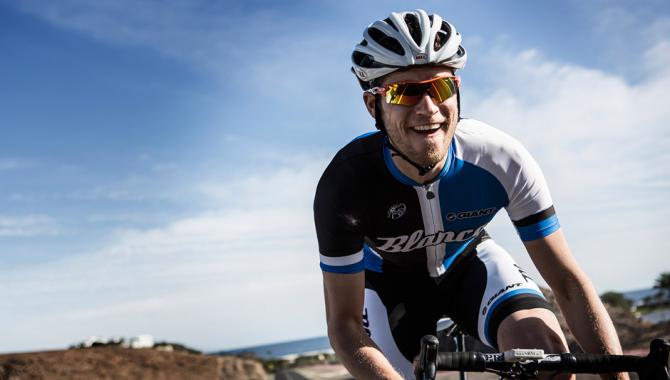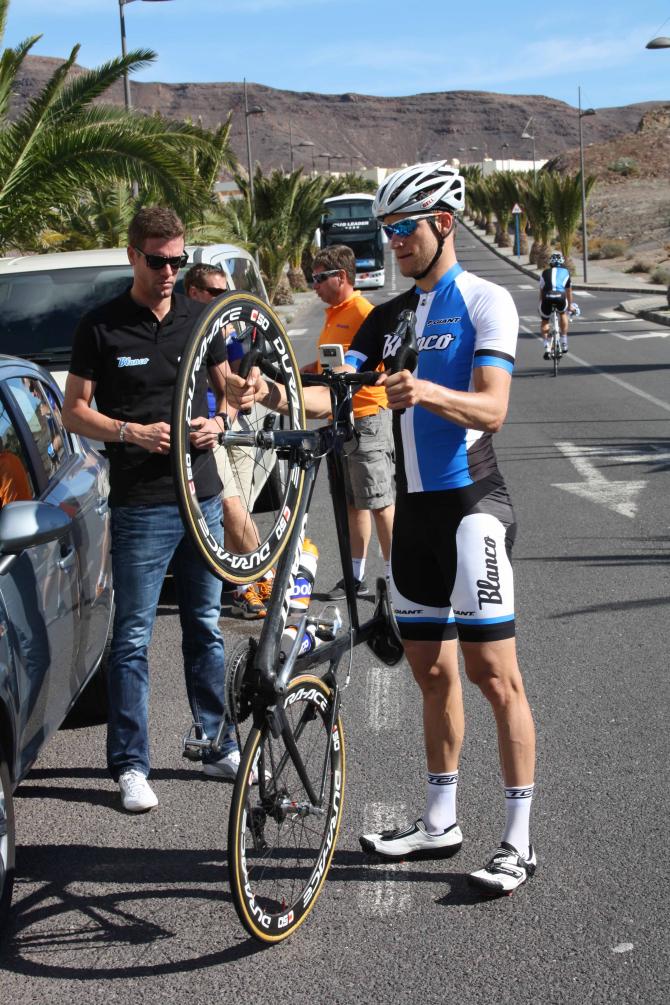Bos concerned by British track dominance
"British team is the only WorldTour-level team in an amateur sport"


Among those watching the track events at the London 2012 Olympics with particular interest was Theo Bos, who was a silver medallist behind Ryan Bailey in the individual sprint in Athens in 2004 before opting to move across to the road four years later following the Beijing Olympics.
If the Dutchman was harbouring any lingering doubts about that decision, they were quietly and definitively assuaged by events in the London velodrome. Backed by some £26 million of National Lottery funding through the four-year Olympic cycle, the Great Britain set-up was operating on a different financial plane to its competitors and duly dominated the medal table, winning seven of the ten gold medals on offer.
During the later years of a track career that yielded five world titles across three disciplines, Bos began to realise that it was becoming impossible to compete with the resources of the British set-up, a trend which formed part of his rationale for swapping the boards for the road, where he enjoyed his best season to date in 2012.
“I saw the times of the British in London, it was incredible, and for sure, I would have had no chance,” Bos told Cyclingnews as his Blanco Pro Cycling Team gathered in Fuerteventura last week. “The other countries, like the French, I know how good they are, but they have no chance against the British, and I know that with the tools I had in Holland, it was going to be really difficult to compete at that level.
“The British team is the only WorldTour level team in an amateur sport. The other teams have the tools of a Continental team.
“I was ahead of everybody for some time but they caught me – and I don’t think that was so difficult – but now they have really moved ahead of everybody.”
On learning of a reduction in British Cycling’s funding in 2009, performance director Dave Brailsford complained to the home press that London 2012 was in danger of becoming the “have-a-go” games, a statement which reiterated the vast gulf that was opening between Britain and the other nations.
The latest race content, interviews, features, reviews and expert buying guides, direct to your inbox!
“When I worked on the track it was with a really small budget and with a trainer, manager, two mechanics and a soigneur,” Bos said, laughing at the memory. “It was a really old-fashioned build-up team, no scientists or anything walking around. It was something that had to come out of yourself. You must have the joy of track cycling and try to become better but you have to be pro-active yourself to improve yourself but there were no scientists, wind tunnels or dieticians behind it.
Technology
In the closed environment of track racing, the effect of each technological advance is amplified. If the British set-up stresses the importance of marginal gains elsewhere, in material and aerodynamics, the advantages of increased funding are rather more substantial: rather than taking stock material from manufacturers, British Cycling designs its own frames at a cost that outstrips even that of bikes such Bos’ own expensively-designed Koga for Beijing 2008.
“Building a frame costs a lot of money. Getting the best carbon is a lot of money. Getting a special crank made for the London Olympics costs a lot of money,” Bos said. “Other countries are riding with Dura-Ace cranks that were made in 2005, because Dura-Ace don’t do any other crank. All these things cost a lot of money.”
Lest his analysis seem like a sob story, however, Bos is at pains to point out that every other country would act in the same way if it had similar financial resources. “No, you can’t blame them because if Holland had the same amount of funding, we would do the same,” he said.
Even so, while Bos appreciates that technological development is an intrinsic part of cycling’s history and appeal, it is a concern that track cycling has been shorn of a great deal of its unpredictability over the past decade.
“I think the Australian cyclists, they have the same potential as the British cyclists, and if you look at the team pursuit, I think individually the Australians are maybe even better,” Bos said. “So why are they losing in the team pursuit? I think it’s because of what they’re wearing and what they’re riding on and everything like that. That’s part of the sport, although maybe it’s become a little bit like Formula 1.”
While Bos believes the onus is on each country to improve its own equipment, he again pointed out that, without money, tangible progress is hard to find. “It’s hard to ask manufacturers to make stiffer bikes and a crank as light as the British crank. I mean, I saw Chris Boardman explaining that crank on television and showing how you can hang a lift on it or something…”
In a bid to level the playing field, the UCI took the step of limiting countries to just one participant per event at the London Olympics and decreed that all bikes used in competition must be commercially available. Bos applauds the measures, but he acknowledged that regulating against one or more nations’ larger financial might is all but impossible.
“Let’s say they make the best frame and I want to buy that frame. Ok I send an email to UK Sports and say, ‘I want to buy that, this is my size.’ They will deliver but it will take a long time, and also, how can I see that it’s the same quality that they’re riding with? There could be less carbon or a softer frame. But I can understand why they would do that and again, I certainly don’t blame them for it.
“If you look at the material, I think it’s maybe a bit unfair, but I don’t see how you can change it.”
As for Bos, by now simply an interested observer of the track scene, he is happy to try and take ideas from the velodrome and try them out on the open road, including the use of skinsuits and aero helmets. “I mean, with my helmet, everybody makes fun of me, but I do it,” he said. “On the road, I’m still looking to be as aerodynamic as possible.”

Barry Ryan was Head of Features at Cyclingnews. He has covered professional cycling since 2010, reporting from the Tour de France, Giro d’Italia and events from Argentina to Japan. His writing has appeared in The Independent, Procycling and Cycling Plus. He is the author of The Ascent: Sean Kelly, Stephen Roche and the Rise of Irish Cycling’s Golden Generation, published by Gill Books.